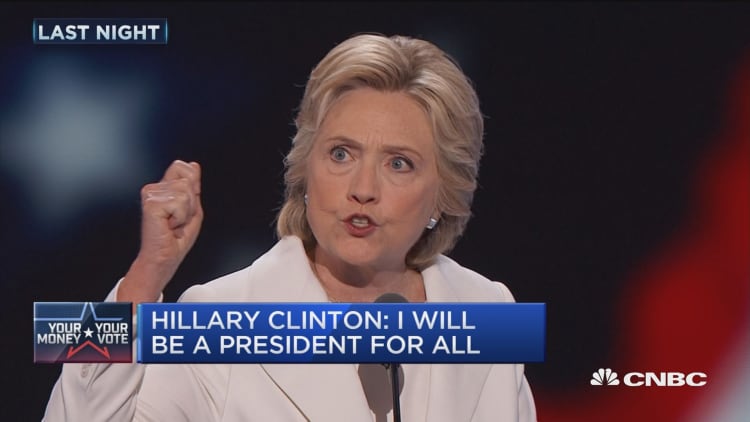
PHILADELPHIA — The two major party political conventions played out pretty much as expected in a campaign that has sketched the brightest possible contrast.
The Republican gathering in Cleveland looked like it was staged by someone who had never before run for public office. It wasn't smooth or united; Donald Trump's chief primary rival spoke but refused to endorse him, while the party's biggest names from years past stayed away altogether. It was raw, angry and sometimes crude, just like the singular reality television star who captured the party's nomination.
Hillary Clinton's Democratic convention this week was as different as Major League Baseball is different from the minors. Celebrities on hand to offer testimonials, from Meryl Streep to Katy Perry to Kareem Abdul-Jabbar, were as prominent as those at the Republican convention were obscure. Production values, from video presentations to the closing balloon drop, were high.
Like Cleveland, Philadelphia featured intra-party dissent. But it was tempered with the active assistance of Clinton's primary rival Bernie Sanders, who offered a strong prime-time endorsement.
The Democratic convention featured an all-star line-up of speakers: Michelle Obama, Elizabeth Warren, Bill Clinton, Vice President Joe Biden, President Barack Obama. Former New York City Mayor Michael Bloomberg, assailing Trump as a fellow Republican billionaire businessman, declared him unfit to be president compared to the "sane, competent person" running against him.
Hillary Clinton, characteristically methodical, soared the least among them. Her lengthy speech ticked through a series of objectives.
She praised Sanders and appealed to his supporters. She outlined an ambitious domestic agenda and vowed to pay for it by taxing Wall Street and the wealthy because "that's where the money is." She contrasted her national security expertise and steady temperament with Trump's inexperience and volatile personality. She extended a hand to dissident Republicans and independents who find him unacceptable for the party of Lincoln and Reagan.
Did Clinton — disliked and distrusted by so many after a quarter-century on the national stage — make herself acceptable to those wavering voters in the center? She tried, by explaining her motivations to help others grounded in her childhood and faith.
Yet changing voter perceptions is difficult at this stage of her career. A large chunk of the Republican electorate is as viscerally opposed to her as Democrats are to Trump.
The effects of these strikingly different conventions won't become clear for a while. Polls in a couple of weeks will provide a more accurate gauge than instant surveys.
But in a country polarized by race and ideology and partisanship, all signs point toward a race that will remain close at least until the next marquee events ahead of Election Day 102 days from now: candidate debates this fall.


